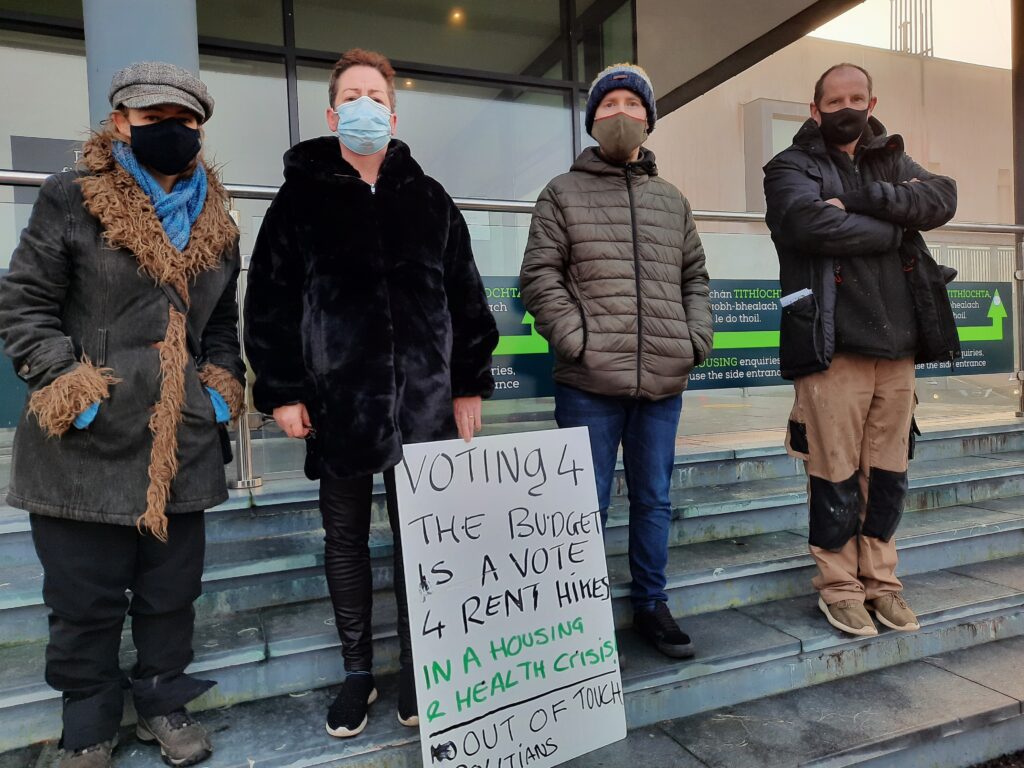
Opponents of county council rent increases in Sligo say they are starting a campaign to highlight the issue.
A number of protesters against the increases stood outside Sligo County Council’s headquarters at County Hall at Riverside in Sligo this morning as councillors gathered for their December monthly meeting.
Protesters outside County Hall said this morning that councillors who voted earlier this year in favour of the council’s budget voted, in effect, for rent increases.
And they have vowed to remember that when the next local elections take place.
However, the council’s acting chief executive Tom Kilfeather says it was outlined at the recent budget meeting that decisions on housing rents are the responsibility of the council executive, in other words council officials.
He also pointed out that there had been a previous deferral in the increase in housing rents due to the pandemic.
Mr Kilfeather added that it was important to note that Sligo County Council has the lowest rent of all local authorities in the country and rents had not been increased for a number of years in Sligo.
Because of this, Sligo County Council has the lowest maintenance spending on social housing in the country.
He says it also does not have enough rental income to properly maintain council houses.
A number of councillors have opposed the rent increases while the Sligo/Leitrim Labour Party asked how it was acceptable, particularly this year, to increase rents.
The Sligo/Leitrim Labour Party says the root of the problem is not at the doors of the council but rather central government.
Those sentiments were echoed by these protesters outside County Hall this morning when they spoke to Ocean FM News.
Meanwhile, Sligo County Council says the result of a lack of funding for housing can be seen in the deteriorating condition of council houses.
There has also been an increase in the number of so-called ‘voids’ or empty houses as it has not been possible to do repairs so as to allow houses be allocated to tenants — which would ultimately reduce the numbers on the housing list.







